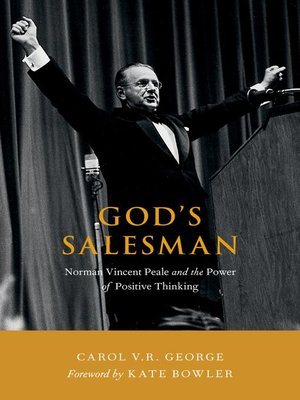
Sign up to save your library
With an OverDrive account, you can save your favorite libraries for at-a-glance information about availability. Find out more about OverDrive accounts.
Find this title in Libby, the library reading app by OverDrive.



Search for a digital library with this title
Title found at these libraries:
| Loading... |
When Donald Trump was married to his first wife Ivana Ivana Zelnícková in 1977, the family minister who officiated the wedding was the preacher and author of The Power of Positive Thinking, Norman Vincent Peale. Perhaps more than any other figure in American public life in the last decade, Donald Trump has been able to reimagine Peale's message of positive thinking to his political advantage. "I never think of the negative," he said after the opening of Trump Tower in 1983. Both Trump and Peale have appealed to people who, like themselves, have felt marginalized by an intellectual and cultural elite. Peale's 1952 book, which helped to drive the religious revival of the 1950s, remains a perennial bestseller, and has affected the lives of a vast public in the United States and around the world. In God's Salesman, Carol V. R. George used interviews with Peale himself as well as exclusive access to his manuscript collection to provide the first full-length scholarly account of Peale and his highly visible career. George explores the evolution of Peale's message of Practical Christianity, the belief that when positive thinking was combined with affirmative prayer, the technique of "imaging," and purposeful action, the result was a changed life. It was a message with special appeal for many in the post-War middle class struggling to rebuild their lives and have a voice in society. George examines the formative influences on Peale's thinking, especially his devout Methodist parents, his early exposure to and then enthusiastic acceptance of Ralph Waldo Emerson and William James, and his almost instinctive attraction to evangelicalism, particularly as it was manifested politically. Twenty-five years after its initial publication, and with a new foreword by Kate Bowler, God's Salesman remains a timely portrait of the man and his movement, and the vital role that both played in the rethinking and restructuring of American religious life over the last seventy years.






